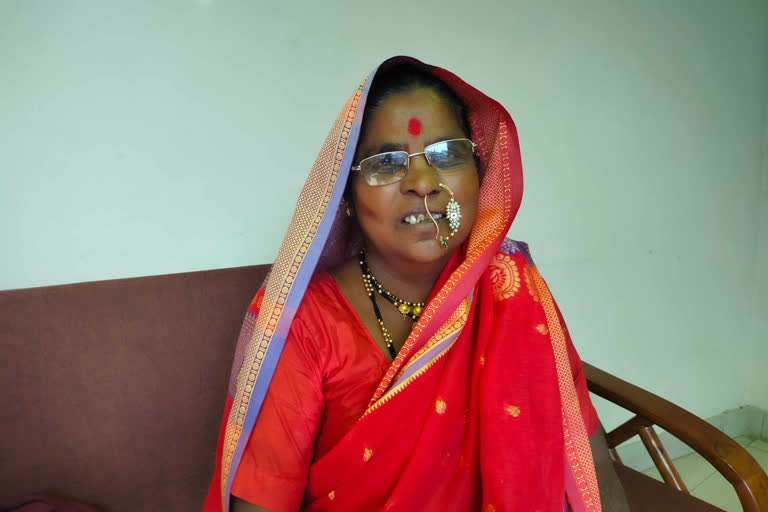New Delhi:Despite being illiterate and spending most of her life in extreme poverty, Padma Shri Rahibai Popere has set an inspiring example before the nation. Popularly known as 'Beej Mata' for her contribution to the conservation of indigenous seeds, the 72-year-old Rahibai spoke to ETV Bharat about her journey from a poor rural girl to a renowned awardee.
Rahibai was in the Komble village of the Akole tribal block in the Ahmednagar district of Maharashtra. Originally from the Mahadev Koli tribal community, she was born into a poor and crowded family with five siblings. Being a woman born in extreme poverty in a farmer's family, she was never sent to school. Most of her childhood was spent farming alongside her parents.
At the mere age of just 12, Rahibai got married to Soma, who was also a farmer from her community in the same village. She continued farming with her husband after getting married, and as time passed, gained commendable expertise in the cultivation of various crops. Even as she aced at what she was doing, Rahibai spent 40 years of her life in her small hut housed in a quaint village located in the remote hilly areas, far away from the opportunities that could have helped her unlock her potential sooner.
Despite not having access to any sort of education, Rahibai had a sharp mind and a keen eye. As she was going about her farming, she at some point realised that the use of chemical fertilizers increases the production of crops, but the cost of farming also increases parallelly. Moreover, the consumption of crops grown with chemical fertilizers also harms health, resulting in high expenditure on medical care. Though she was not aware of the concept of organic farming, which had by then just started budding as an urban concept, Rahibai started growing crops organically in what she called her 'kitchen garden'.
Also read:Bengal 'padman' bats for sanitary pads supply thru ration shops
